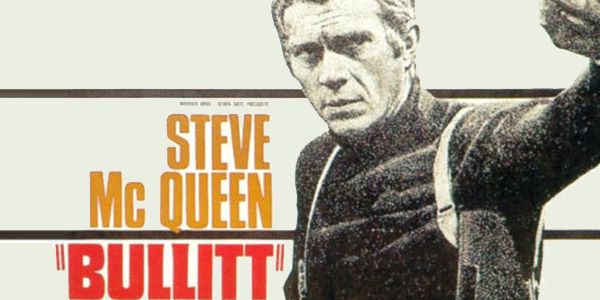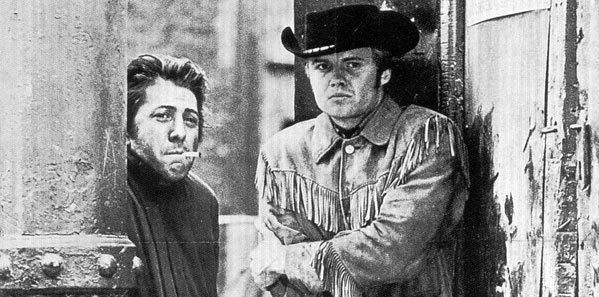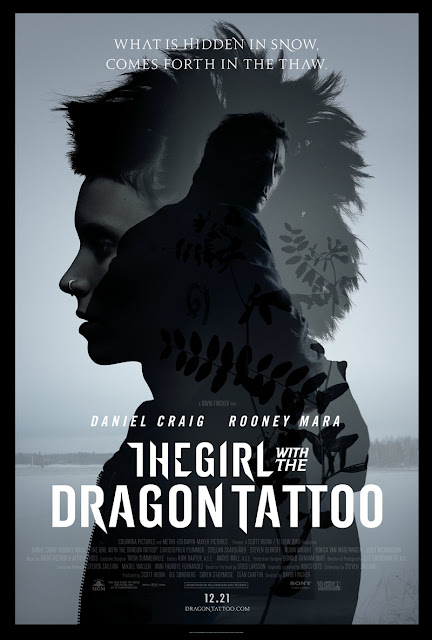A literary phenomenon that has swept the globe,
Stieg Larsson's The Girl With the Dragon Tattoo arrives on the big screen courtesy of director
David Fincher and Academy Award-winning screenwriter
Steven Zaillian.
The result is a sturdily scripted, assuredly directed thriller that
gradually lures us into a labyrinthine mystery involving a discredited
journalist, a cryptic computer hacker, and a wealthy family harboring
some particularly dark secrets. Notably absent outside of the visually
striking (yet somewhat inexplicable) black-drenched credit sequence set
to
Trent Reznor and
Karen O's pulsing version of
Led Zeppelin's "Immigrant Song," however, is the dynamic and innovative visual style that has defined much of
Fincher's finest work.
Journalist Mikael Blomkvist (
Daniel Craig) has just lost a highly publicized court battle against powerful entrepreneur Wennerström (
Ulf Friberg) when he is summoned to the remote island estate of aging businessman Henrik Vanger (
Christopher Plummer),
who makes him a most-unusual proposition. Forty years ago, Henrik's
beloved great-niece Harriet vanished without a trace. Henrik is
convinced that someone in his family -- where greed and Nazism run
rampant -- has gotten away with murder, and despite the firestorm of
controversy over Blomkvist's credibility, he's certain that the seasoned
reporter can root out the killer. Meanwhile, as Blomkvist submerses
himself in a mystery decades in the making, misfit computer hacker
Lisbeth Salander (
Rooney Mara) finds her violent past returning with a vengeance thanks to her twisted new parole officer (
Yorick van Wageningen).
Before long, Blomkvist and Salander are working together as a team to
investigate the Vanger family, who all live on the same island yet
display an indifference to one another that often spills over into
outright animosity. But with each new clue that Blomkvist and Salander
uncover, the more apparent it becomes that Harriet's disappearance may
in fact lead them directly into an even darker mystery.
In
Seven and
Zodiac,
Fincher
used masterful pacing, atmospheric cinematography, and acute attention
to detail to seduce us into grim worlds of murder and obsession. Those
familiar themes are still very much propelling factors in
The Girl With the Dragon Tattoo, though this time
Fincher
comes off as much more restrained than usual. It's unclear whether
that's a result of his not being as emotionally invested in the material
or simply recognizing the need to get out of the way of a good story,
but by reteaming with cinematographer
Jeff Cronenweth (
Fight Club,
The Social Network),
Fincher still gives
The Girl With the Dragon Tattoo
an exquisitely chilly visual scheme that provides a palpable sense of
atmosphere while holding the audience at arm's length. It's a good match
for a such a pulpy mystery, though a little of the director's trademark
inventiveness could have gone a long way in not only distinguishing
Fincher's take on the story from the previously filmed
Swedish-language version, but also in helping to connect the dots of
The Girl With the Dragon Tattoo's somewhat contrived storyline.
An astonishing blend of dark allure and damaged brilliance,
Mara is compulsively watchable as Lisbeth Salander, while
Craig
effectively embodies quiet integrity as the humiliated reporter fleeing
the limelight while sharpening his investigatory skills. Compelling as
both characters are, however,
Fincher's
cool direction stunts any attempts to form an emotional connection with
them, even when Mikael and his daughter have a gentle conversation
about faith, or the scene in which Lisbeth bares her soul to her
investigative partner by confessing how she got caught up in the legal
system in the first place. And while a scene of shocking violence
between Lisbeth and her sadistic parole officer may be off-putting to
some, its contextual relevance is all but undeniable once we've learned
her darkest secret.
Given the lurid nature of
Stieg Larsson's story, it's easy to see why
Fincher
would be compelled to adapt it for the big screen. But it's impossible
not to feel like we've been down this road numerous times with the
director before. In
The Social Network, it felt as if
Fincher were truly growing as a filmmaker both thematically and stylistically. Despite being a solid mystery assuredly told,
The Girl With the Dragon Tattoo
feels like something of a regression -- one that's largely absent of
the factors that established him as one of his generation's most
innovative filmmakers.




















